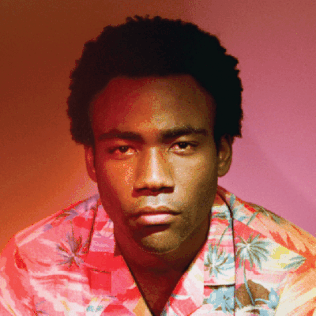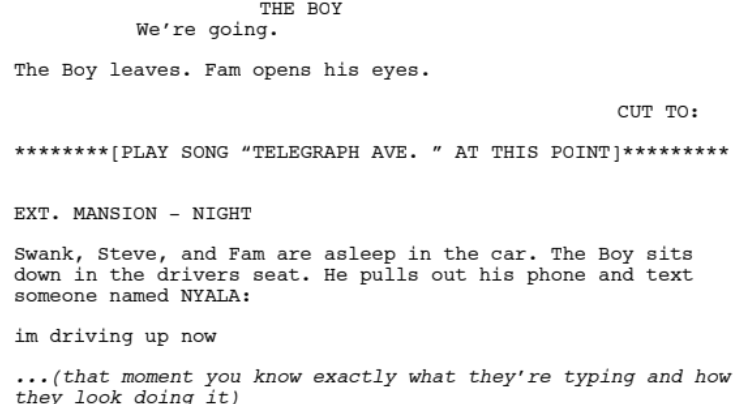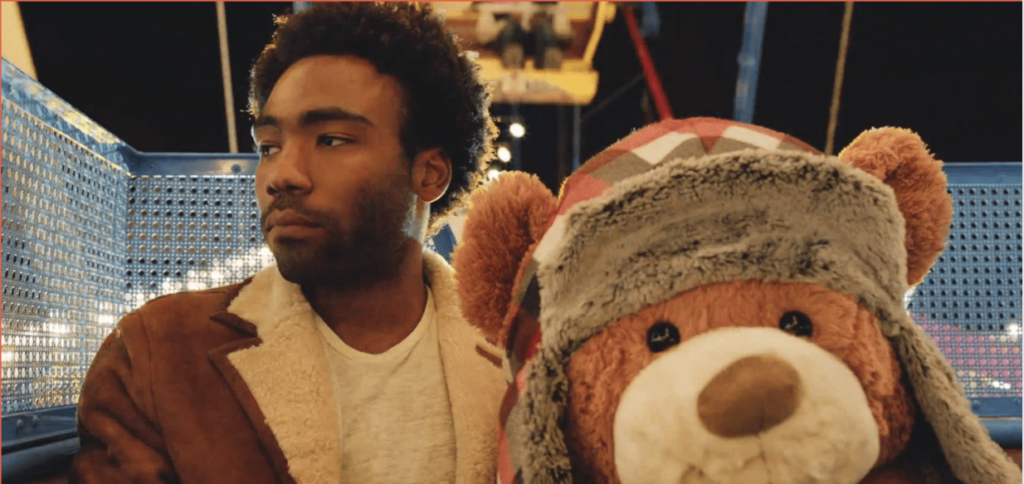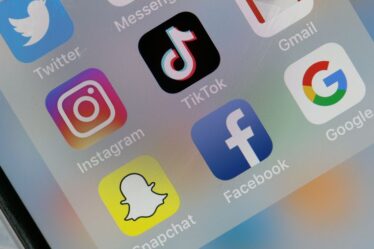
By Mari Apazidis
There are no instructions for using the Internet. For better or worse, it’s free reign. Our generation was raised by this technological chaos—some of us have had the same Instagram account since fifth grade. With unlimited internet access, there comes both an all-encompassing power and an enormous responsibility. But how were we supposed to know that as eleven-year-olds.
Donald Glover, also known as Childish Gambino, created an album/screenplay entitled Because the Internet. In both the album and screenplay, he explores how the internet influences its users, shapes our behaviors, and how it can make us hyper-aware of everyone’s thoughts about us. In an interview at Studio Q with Jian, Glover paints a hypothetical picture where you call someone a bad name in elementary school, and then you notice that your action caused everyone else in class to also fully believe what you said: “You don’t have to deal with that online,” says Glover, “You can say the worst thing to someone [without feeling the consequences]… that’s what trolling is.”
At first, Glover’s criticism of the Internet may lead us to believe that he hates the internet but that isn’t true either. He expressed in the interview that he owes everything he has to Twitter and his online presence, and that the Internet can be a good thing, too. What makes this project so unique is that it goes beyond just music— it is philosophically profound. It even has a complementary short film and screenplay. Glover made more than music— he told a story.

Direct screenshot of Because the Internet screenplay.
Available for free consumption on Reddit
The Boy (arguably based on Glover himself) is the main character of the Because the Internet screenplay. He has more money than he realizes what to do with and loves to troll people online. The fact that this entire story revolves around an Internet troll makes me think that Glover wants his audience to identify with The Boy to some extent. If we participate in the Internet in some way, perhaps there are times when we can implicitly troll other people.
Glover’s second track in Because the Internet, “I. Crawl,” talks about how we are crawling all alone in this technological world. The chorus going into the verse goes as follows:
Where we were, kinda thing.
Betcha crawl, all alone.
(Who am I?)”
Just like that, the album is already transformed into an existential dialogue. Alessia De Gasperis, formerly known as Kai, sings this preliminary chorus, and when Glover asks “Who am I?” in a disengaged way, his words are lost in the ambience of the music. Arguably, the “crawl” references how we are all new to the Internet, and in essence are crawling our way through like babies.
Moreover, having a presence on the Internet demands us all to look inward and ourselves, who are we? What image are we presenting? Do we like the person that we present ourselves to be more than our actual selves? Do we even recognize ourselves?
“III. Telegraph Ave. (“Oakland” by Lloyd)” is played at a part in the screenplay where the main character, The Boy, meets a romantic interest, Nyala. First of all, “Telegraph Ave.” is an absolutely incredible piece. Glover created the song, “‘Oakland’ by Lloyd”, that exists within “Telegraph Ave.” In the song, Glover is singing along to “Oakland” in the car, and it starts with an underwater audio quality and blossoms into Glover’s beautiful verses. In the screenplay at this time, Nyala is talking to The Boy, who just drove to Oakland to see her. Wanting to end their romance, Nyala says:
“There’s a point you reach when you’re no longer able to feel like you did. Not about a person, not with a certain place, you just can’t feel like you did because that muscle or whatever is just dead… Or gone.”
The way I understood this part is that the Internet tends to numb us. We’re just going through the motions and reaching that point where we don’t feel normal. Time doesn’t feel real— even the Instagram algorithm simultaneously shows us pictures that were posted two minutes ago and two weeks ago. The muscle that we use to feel things fully is expended on instant gratification, and now we can only stomach a few seconds of content at a time until we’re bored. Despite the darkness of this part, “Telegraph Ave.” is simultaneously a light and beautiful love song:
“Fourth of July, house in Kauai,
yeah, we can try
So let’s try”
Here, Glover imagines a future with this girl, picturing the holidays and the vacation homes, saying that “we can try.” Glover yearns for stability in love, but the screenplay suggests that their romance is over. So, Glover leaves it up to his audience. Which is it, does Glover get his “house in Kauai” or is there this overwhelming numbness surrounding his life?
In my opinion, it’s a mix of both. “Telegraph Ave.” is fleetingly beautiful, and placed at a time in the album where there is no hope.
Isn’t that how life is right now? Everything seems so hopeless, and yet don’t we find ourselves sometimes imagining a harmonious, peaceful future? The only way to get through is to dream sometimes, even if it’s just for a moment.
That’s how life is, and it’s Because the Internet.




